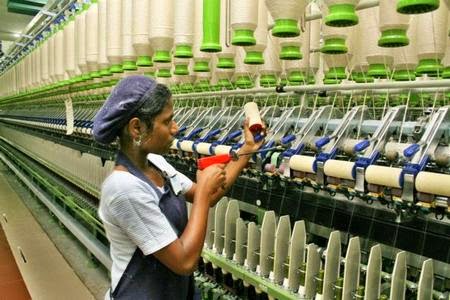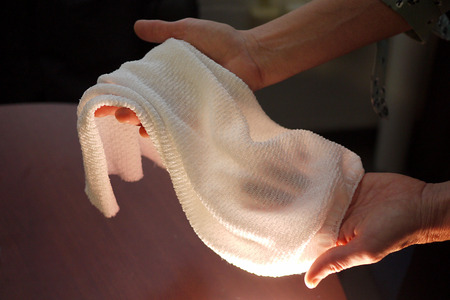
Indian textile industry aims the 350 billion dollor mark by 2025
YarnsandFibers News Bureau 2019-06-10 15:30:00 – IndiaIndia, which is emerging as a global textile hub with huge potential, needs to develop man-made fibre to remain competitive in the global market and it aims to be a $350 billion industry by 2025, industry officials June 6 said.
"It is high time that the industry changes its approach to move into the second growth phase and aim for exports of around $100 billion from the current $40 billion," Textiles Secretary Ajit B Chavan said at the CII Texexcel 2019, the National Textiles 4.0 Summit here.
"We need to come up with detailed plans that can take the industry to its next level. All these years we have focused on more production scale, but now the focus has to be on quality and other aspects to improve our competitiveness," he added.
In view of the US China trade war, India needs to create a level playing field for local players and protect the domestic industry.
"India needs to create trade barriers for China to prevent it from dumping cheap textile products into India. The textile industry aims to be a $350 billion industry by 2025 from the current $137 billion," said Chairman, CII National Committee on Textile & Apparel & Managing Director, Grasim Industries Dilip Gaur said.
"We immediately need to address the issue of being cost driven rather than innovation driven. India needs to develop and grow man-made fibre to remain competitive in the global market," Gaur added.
In order for manufacturers to attain competitiveness, it will be a boon to integrate the concepts of Textile 4.0 with manufacturing excellence, said Prashant Agarwal, Joint Managing Director, Wazir Advisors.
He said, the country needs to make itself competitive in the global market and that is the only way, all other means are temporary.
"The US China trade war holds a lot of opportunities for India, but we need to be competitive. We need to have smart factories," Agarwal added.
He said, there is a lot of emphasis on sustainability and the world is looking at factories to reduce the use of resources and water.
"Companies should also look at reducing carbon footprints. India should look at presenting itself as a competitive manufacturing nation," Agarwal added.
Courtesy: Money Control
Market Intelligence
Ask for free sample Report

experience
Customer Base
dedicated team
Countries Served Worldwide









